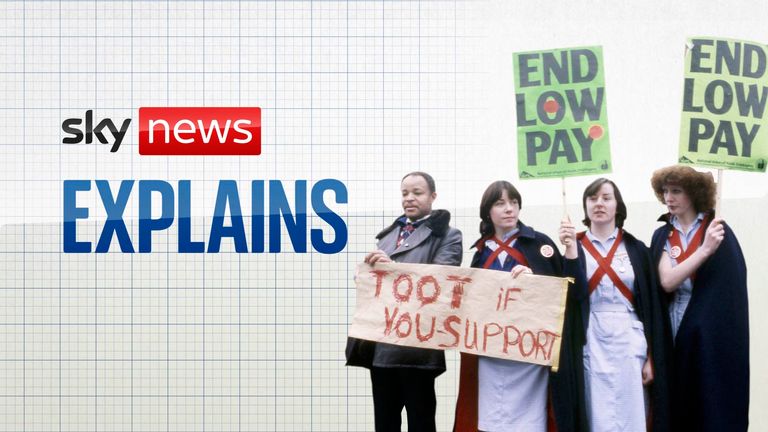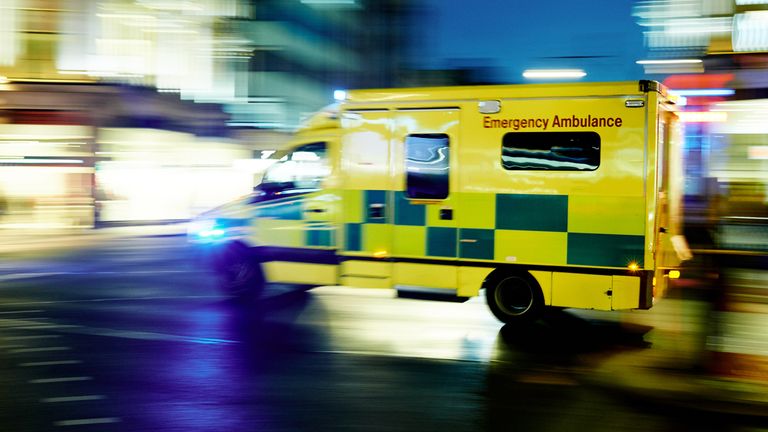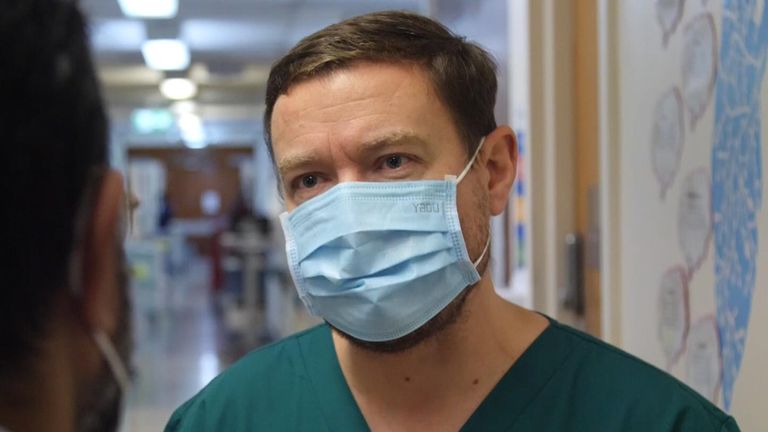More nurses strikes that would see twice as many workers take action will be announced for February if talks with the government do not progress soon, union bosses have warned.
The Royal College of Nursing (RCN) union said that new walkouts would be announced should negotiations over pay remain stalled by the end of January.
It would see all eligible members in England go on strike for the first time, making it the RCN’s biggest to date.
RCN general secretary Pat Cullen insisted the public backed the nurses in their pay dispute with the government, blaming the prime minister for his “baffling” approach to the negotiations.
The union initially demanded a pay rise of 19%, though has indicated it may accept 10%, but Downing Street is instead reportedly considering a one-off payment.
With no sign of a breakthrough, Rishi Sunak‘s administration is pushing for new anti-strike laws that would require minimum levels of service on walkout days.
Ms Cullen said ministers risked forcing nurses to quit the health service en masse.
“The nurse shortage costs lives – Sunak cannot put a price on a safe NHS,” she said.
Read more:
All you need to know about January’s strikes
A history of strike action and what they’ve achieved
6 February earmarked for potential strike
Members would likely take action on 6 February, the RCN said, to coincide with the 10th anniversary of an inquiry that looked into how nurse shortages impacted patient mortality.
The Robert Francis inquiry, which was focused on Mid Staffordshire NHS Trust, uncovered the neglect of hundreds of patients at Stafford Hospital between 2005 and 2009
Some elderly people were left lying in their own urine, unable to eat, drink or take essential medication.
Mr Francis has warned that the current NHS crisis is “Mid Staffs playing out on a national level, if not worse”.
A Department for Health and Social Care spokesperson showed no sign of a change in approach in a statement on Saturday night, which said more than one million NHS workers had received a minimum £1,400 pay rise this year.
They added: “This is on top of a 3% pay increase last year when public sector pay was frozen and wider government support with the cost of living.”
Read more:
‘Disaster zone’ as patients left to die in hospital corridors
Anger over death of woman who waited 15 hours for ambulance
No sign of end to wave of action
The latest threat from the RCN union comes ahead of walkouts on Wednesday and Thursday, when nursing staff from more than 70 NHS trusts are set to strike.
This includes 55 trusts in England that were not involved in the first wave of action in December.
If RCN members strike in February, they will join nurses in Wales who are already expected to take action.
Click to subscribe to the Sky News Daily wherever you get your podcasts
There are not currently any planned walkouts in Northern Ireland, where there is no executive in place at Stormont, or Scotland, where negotiations with the Holyrood government are ongoing.
It all comes amid a far wider range of industrial action that has taken place across the winter so far, encompassing everything from rail and mail to civil servants and bus drivers.
If you are an NHS worker and would like to share your experiences with us anonymously, please email NHSstories@sky.uk







